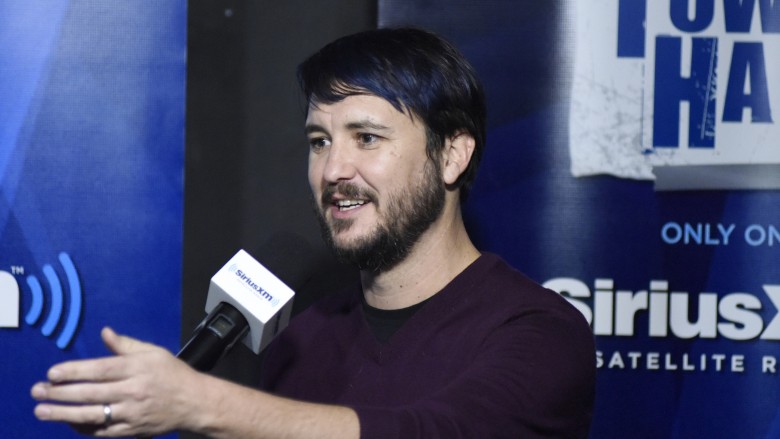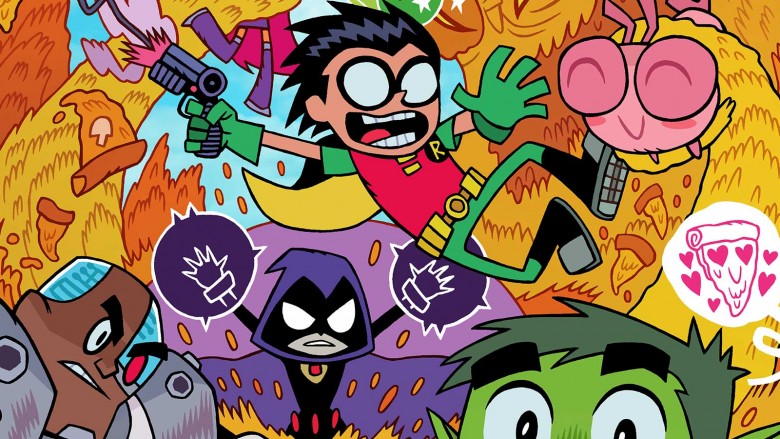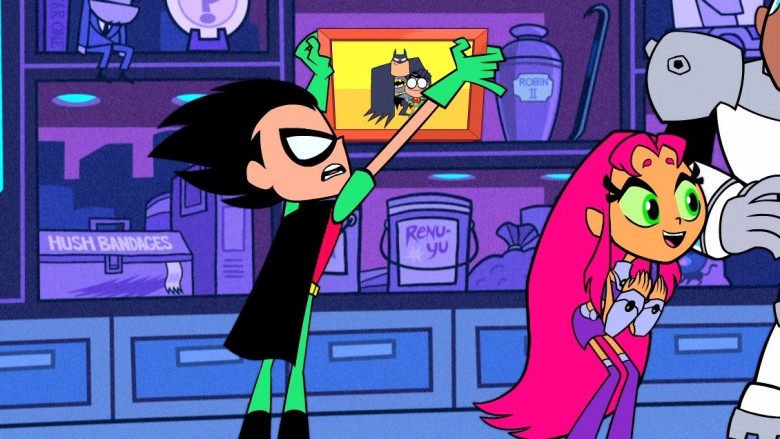The Untold Truth Of Teen Titans Go!
Since its premiere in 2013, Cartoon Network's Teen Titans Go! has grown to be one of the network's biggest hits and a gateway for a ton of new fans into the DC Comics canon.
But that journey hasn't always been smooth—and there are more than a few behind-the-scenes tidbits to dig into for a series this young. From the show's strangely humble beginnings to a major backlash among a certain contingent of DC fans when it launched, let's dig in to the untold truth of Teen Titans Go!
It started out as a series of DC Nation shorts
The Cartoon Network knew it wanted to leverage the Teen Titans brand in some way, but after the 2003-2006 Teen Titans series came to an end, the network wasn't exactly sure what to do next, so it started experimenting with the characters via a series of shorts on its DC Nation animation block. The fruit of those efforts was a little miniseries dubbed New Teen Titans, which turned into a breakout hit for the programming block in 2011 and 2012, and the network decided to double down on that silly, slapstick version of the characters and turn it into its own show. Thus, Teen Titans Go! was born—and it all started with a few experimental animated shorts.
It has the same voice actors as 2003's Teen Titans series
Apart from the characters, Teen Titans Go! doesn't bear too many resemblances to the 2003 Teen Titans animated series when it comes to tone. Sure, both shows are acclaimed in their own right, but for very different reasons. Fans and critics alike loved Teen Titans because it took a fairly serious approach to the characters and themes, while Teen Titans Go! is one of the silliest (albeit quite clever) shows on the airwaves. One thing that did stay the same? The voice talent behind the characters. Teen Titans Go! brought back the original Teen Titans voice talent to once again voice these young heroes, including Robin (Scott Menville), Starfire (Hynden Walch), Cyborg (Khary Payton), Raven (Tara Strong), and Beast Boy (Greg Cipes).
Wil Wheaton played Aqualad
In the early 2000s, geek icon Wil Wheaton lent his vocal talents to the character Aqualad for several episodes during the run of the original Teen Titans. When Teen Titans Go! was looking to bring the character back for a stint, they once again tapped the Star Trek alum to voice the Atlantean superhero. Outside of his acting career (and playing himself in The Big Bang Theory), Wheaton has also had a solid career as a voice actor, including roles in Ben 10, Family Guy, Batman: The Brave and the Bold, Mobile Suit Gundam Unicorn, and several other projects.
A fake song from the show became a hit
This one tends to get a little meta. The song "The Night Begins to Shine," featured in the episode "Slumber Party" and lip-synced by Cyborg, is actually an original tune from the band B.E.R. The episode itself pretty much plays as a music video. It was written for the show, but actually turned into a decent little hit in its own right in the real world. The fake, 1980s-esque track climbed the iTunes rock chart, eventually topping out at No. 4. It also charted internationally in the UK, Mexico, Japan, and Australia.
The TV series, inspired by a comic, has actually inspired its own hit comic
There's nothing the comic book medium enjoys quite as much as folding in upon itself—then folding in a few more times. The original Teen Titans TV series from 2003 was largely based on the early 1980s New Teen Titans comic book series. DC published a comic book series based on the 2003 TV series called (you guessed it) Teen Titans Go! So when Cartoon Network relaunched the TV incarnation, they borrowed the Go! moniker for the new show. When the show became a hit, it spawned its own Teen Titans Go! comic series, based on the new TV series. It's been running since 2013. Confused yet?
Young Justice fans really didn't like it…
Though it's finally getting a well-deserved revival, fans were extremely upset when DC pulled the plug on the Young Justice animated series in 2013. The show was a serious, nuanced take on the young heroes in the DC universe, and garnered a ton of critical acclaim during its brief run. When Cartoon Network dropped Young Justice and introduced the wacky Teen Titans Go! just a year or so later, fans were livid. Obviously, these two events aren't exactly related. Young Justice was apparently cancelled due to low toy sales, while Teen Titans Go! was a spinoff of the successful animated shorts. But it didn't stop fans from connecting the two.
…So they did a Young Justice crossover
Never ones to shy away from controversy, the creative team behind Teen Titans Go! revived the Young Justice crew for an animated crossover episode that was pure insanity. It saw the Titans trying to get more serious, so they cross paths with the Young Justice crew. The idea came together naturally, largely inspired by complaints that Cartoon Network should've made a more serious show. Producer Michael Jelenic joked the crossover "reminds our Titans why everyone hates their show" by casting them directly against Young Justice. Though the episode was a silly good time, it didn't do much to bring over any Young Justice fans still bitter over the cancellation.
Jason Todd's ashes are on Robin's bookshelf. Now that's dark
This show piles in countless Easter eggs per episode. From the posters in the background to throwaway lines along the way, it's jam-packed with little nods and references to the DC universe. One really dark one that popped up on Robin's bookshelf? The ashes of Jason Todd, the second Robin in the main DC Comics canon. If you'll remember, the Joker beat Todd to death with a crowbar in one of the most widely read (and divisive) stories in Batman lore. It's a blink-and-you'll-miss-it bit, but one heck of a dark move for a kid's show.
Cartoon Network banned an episode after the Paris attacks
With an animated show, you obviously have to work ahead a good bit on the production schedule. That bit the show in the butt on November 13, 2015, when Teen Titans Go! aired the episode "Salty Codgers" at pretty much the same time as the tragic Paris attacks. The plot focused on the team dying of old age, with Raven confronting Death to save her pals. After the less than fortunate timing, Cartoon Network yanked the episode. It wasn't explicitly in bad taste, obviously, but execs decided to play it safe. Since 30-minute episodes are typically two shorter episodes packaged together, they've since replaced "Salty Codgers" in future airings.



